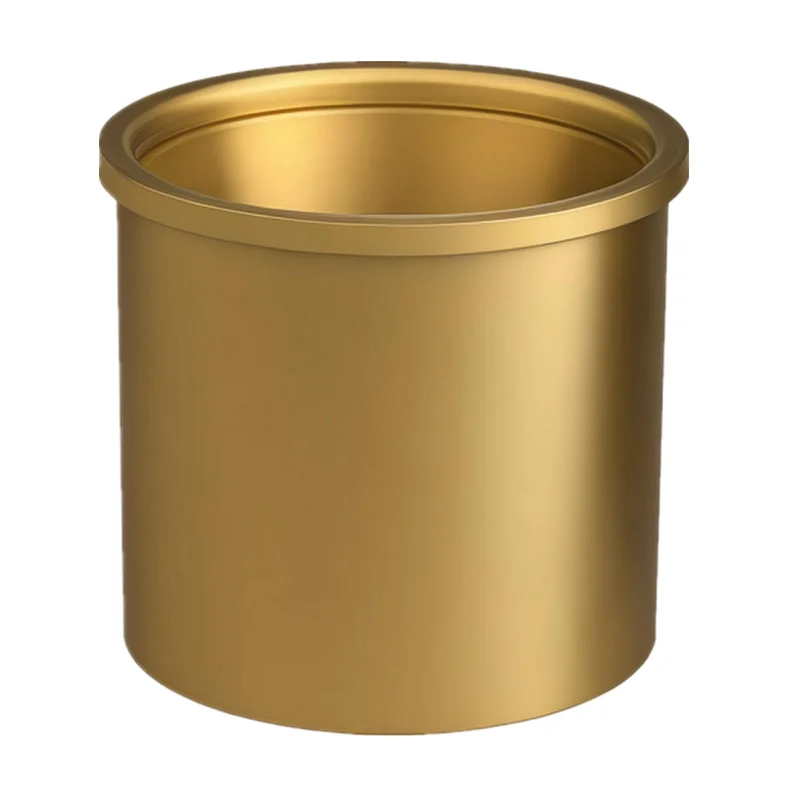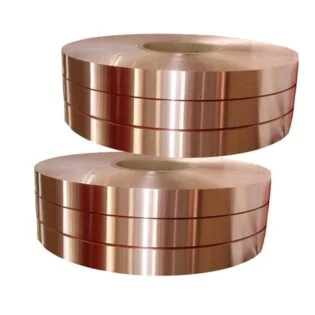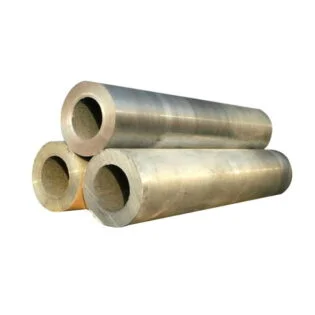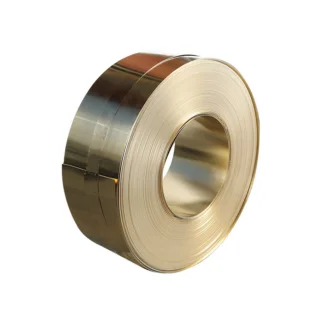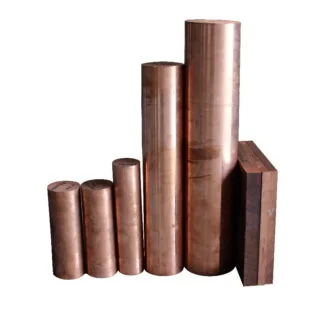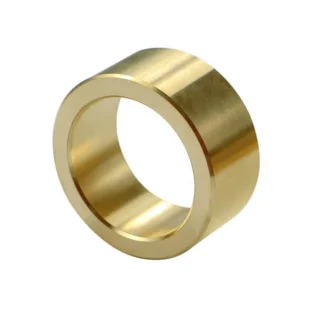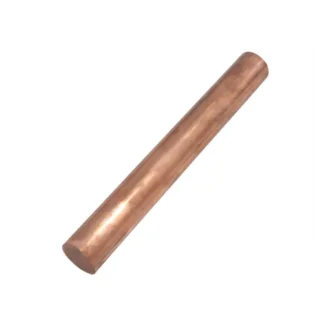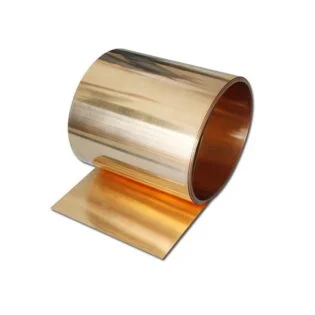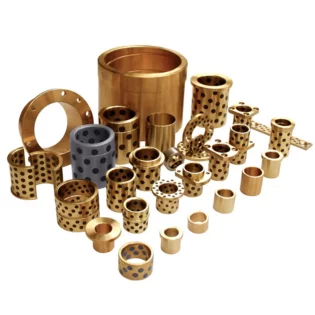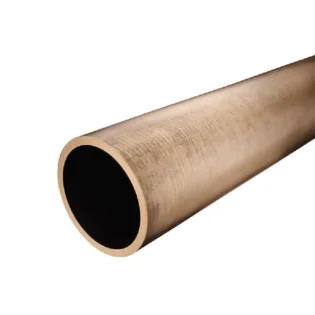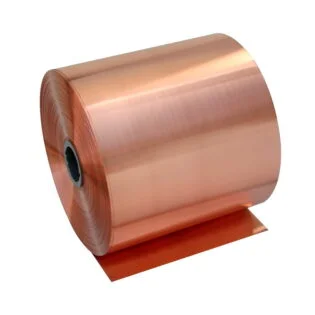C67400 Description
- Annealing
- UNS C67400 copper alloy is annealed between 427 and 593°C (800 and 1100°F).
- Cold Working
- UNS C67400 copper alloy has poor cold working capacity.
- Welding
- Welding processes suitable for UNS C67400 copper alloy include brazing, gas shielded arc welding, butt welding, spot welding, soldering and seam welding. Coated metal arc welding and oxyacetylene welding are not recommended for this alloy.
- Forging
- UNS C67400 copper alloy is forged between 593 and 677°C (1100 and 1250°F). The hot forgeability rating of this alloy is 100.
- Machinability
- The machinability rating of UNS C67400 copper alloy is 25.
- Hot Forming
- UNS C67400 copper alloy has excellent hot forming capacity.
- Applications
- UNS C67400 copper alloy can be used for pump components, heavy-duty mechanical components, valve stems and bearings.
C67400 Product description: Manganese bronze
UNS C67400 copper alloy is a hot forgeable alloy with good corrosion resistance and high strength. Applications include heavy duty mechanical components including bearings, valve stems and pump components.
The datasheet below provides an overview of UNS C67400 copper alloy.
Typical uses
Industrial: bushings, cams, chain guides, food conveyor chain, gears, shafts, wear plates
Other: connecting rods
Similar or equivalent specification
| CDA | ASTM | SAE | AMS | Federal | Military | Other |
|---|---|---|---|---|---|---|
| C67400 | J461 J463 |
Chemical composition
| Cu% | Pb% | Sn% | Zn% | Fe% | Ni%1 | Al% | Mn% | Si% | |||
|---|---|---|---|---|---|---|---|---|---|---|---|
Chemical composition according to SAE J463 1Ni value includes Co. Single values represent maximums. | |||||||||||
| 57.00- 60.00 | 0.50 | 0.30 | Rem. | 0.35 | 0.25 | 0.50- 2.00 | 2.00- 3.50 | 0.50- 1.50 | |||
Machinability
| Copper alloy UNS No. | Machinability rating | Density (lb/in3 at 68 °F) |
|---|---|---|
| C67400 | 30 | 0.292 |
Mechanical properties
Mechanical properties according to SAE J463
C67400
Extruded and drawn
Size range: up to 1″ inclusive
| Tensile strength, min | Yield strength, at 00.5% extension under load,, min | Elongation, 4x Diameter or Thickness of Specimen, min | Rockwell “B” hardness | Remarks | ||
|---|---|---|---|---|---|---|
| ksi | MPa | ksi | MPa | % | min HRB | |
| 78 | 540 | 40 | 275 | 8 | 84 | |
Size range: over 1″ to 2 ” inclusive
| Tensile strength, min | Yield strength, at 00.5% extension under load,, min | Elongation, 4x Diameter or Thickness of Specimen, min | Rockwell “B” hardness | Remarks | ||
|---|---|---|---|---|---|---|
| ksi | MPa | ksi | MPa | % | min HRB | |
| 75 | 515 | 40 | 275 | 10 | 80 | |
Size range: over 2″ to 3″ inclusive
| Tensile strength, min | Yield strength, at 00.5% extension under load,, min | Elongation, 4x Diameter or Thickness of Specimen, min | Rockwell “B” hardness | Remarks | ||
|---|---|---|---|---|---|---|
| ksi | MPa | ksi | MPa | % | min HRB | |
| 70 | 485 | 36 | 250 | 12 | 78 | |
Physical properties
Physical properties provided by CDA | |||||||||||
| US Customary | Metric | ||||||||||
|---|---|---|---|---|---|---|---|---|---|---|---|
| Melting point – liquidus | 1625 °F | 885 °C | |||||||||
| Melting point – solidus | 1590 °F | 866 °C | |||||||||
| Density | 0.292 lb/in3 at 68 °F | 8.08 gm/cm3 at 20 °C | |||||||||
| Specific gravity | 8.08 | 8.08 | |||||||||
| Electrical conductivity | 23% IACS at 68 °F | 0.13 MegaSiemens/cm at 20 °C | |||||||||
| Thermal conductivity | 58 Btu/sq ft/ft hr/°F at 68 °F | 100.5 W/m at 20 °C | |||||||||
| Coefficient of thermal expansion 68-572 | 11 · 10-6 per °F (68-572 °F) | 19 · 10-6 per °C (20-300 °C) | |||||||||
| Specific heat capacity | 0.09 Btu/lb/°F at 68 °F | 377.1 J/kg at 20 °C | |||||||||
| Modulus of elasticity in tension | 16000 ksi | 110317 MPa | |||||||||
| Modulus of rigidity | 6000 ksi | 41369 MPa | |||||||||
Fabrication properties
Fabrication properties provided by CDA | |||||||||||
| Technique | Suitability | ||||||||||
|---|---|---|---|---|---|---|---|---|---|---|---|
| Soldering | Fair | ||||||||||
| Brazing | Good | ||||||||||
| Oxyacetylene welding | Not recommended | ||||||||||
| Gas shielded arc welding | Fair | ||||||||||
| Coated metal arc welding | Not recommended | ||||||||||
| Spot weld | Good | ||||||||||
| Seam weld | Good | ||||||||||
| Butt weld | Good | ||||||||||
| Capacity for being cold worked | Poor | ||||||||||
| Capacity for being hot formed | Excellent | ||||||||||
| Forgeability Rating | 100 | ||||||||||
| Machinability rating | 30 | ||||||||||
Thermal properties
Thermal properties provided by CDA *Temperature is measured in Fahrenheit. | |||||||||||
| Treatment | Minimum* | Maximum* | |||||||||
|---|---|---|---|---|---|---|---|---|---|---|---|
| Annealing | 800 | 1100 | |||||||||
| Hot treatment | 1100 | 1250 | |||||||||
Common fabrication processesHot forging and pressing, machining
Common fabrication processes provided by CDA
